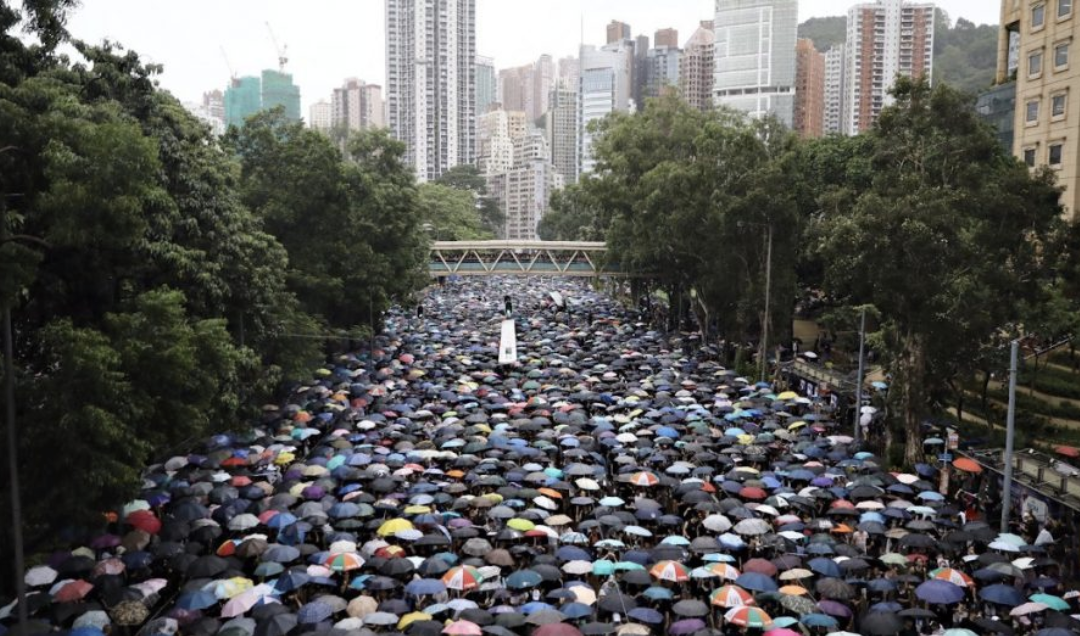
Oct 18, 2019 | Andrew Wong, Faculty + Staff
Andrew Wong (IV)
This year, the Upper School History Department welcomes Mr. Saad Toor, who will be teaching three sections of World History 9 and one section of World History 10.
Mr. Toor recently completed his M.Sc. in South Asian Studies at Oxford University in the United Kingdom, where he was fortunate enough to be taught by important world leaders such as Hillary Clinton, the Prime Ministers of Kosovo and Kenya, and many British ambassadors. In addition, he was a classmate to politicians and important figures in the world, such as Nobel Peace Prize laureate Malala Yousafzai, and former Australian Prime Minister Kevin Rudd.
At Oxford, Mr. Toor studied the history of Pakistan and India under British colonization, as well as the geopolitical aftermath of decolonization that continues to affect the region to this day. Outside of class, Mr. Toor played cricket for the Oxford Pakistan XI club team and Merton College club teams, and trained with the Wolfson-Saint Cricket Club and Oxenford Cricket Club. Mr. Toor was also active in debate at Oxford, and was fortunate enough to debate Gandhi’s grandson on the Indian Partition.
Alongside his M.Sc. in Modern South Asian Studies, Mr. Toor holds both an M.A. in Curriculum and Instruction and a B.A. in Political Science with a minor in History and Middle Eastern Studies from the University of Connecticut.
Mr. Toor taught college students at the University of Connecticut’s Osher Lifelong Learning Institute and Stanford Unviersity’s Bing Overseas Program. He also taught history to high school students for two years in Jeddah, Saudi Arabia at an international school, and taught for two years in the Connecticut public school system.
Mr. Toor brings a unique global perspective from his studies in the UK and two years teaching in Saudi Arabia, and he hopes that his “extensive global experience will inspire Pingry students to reach out of their comfort zone and go abroad to have life-changing experiences similar to what I did.”
Having lived in three different countries and two different states in the last four years, Mr. Toor hopes that New Jersey will be a new and welcoming home for him. He is especially interested in Pingry’s Honor Code, and how it “inspires students to hold themselves to the standards of ‘Excellence and Honor’ and try new things in school.” He plans to try new things as well, and intends to “learn all sorts of life lessons from [his] own students” as they grow throughout the year. He is thrilled to bring expertise on the histories and politics of the Middle East, Pakistan, and India to the classroom, and hopes that his students will be just as interested in history as he is.
In his free time, Mr. Toor loves playing and watching cricket, and has written several commentaries on the sport. He is an avid Dallas sports fan, and loves watching UConn college basketball during March Madness.

Oct 18, 2019 | Andrew Wong, Summer Experiences, Uncategorized
Andrew Wong (IV)
As my freshman year approached its finale of final exams, I looked forward to a summer of rest and relaxation.
Half a world away in Hong Kong, students were also busy preparing for their exams and their summer. Unlike me, though, they were ready to forsake their fun summer activities and travel plans this year for something they all knew was more important than a trip abroad. On June 9, 2019, a few days after the school year ended at Pingry, hundreds of thousands of students took to the streets of Hong Kong, on a hot, humid afternoon.
Why?
Hong Kong, formerly a British colony, was handed back to China in 1997. As part of the handover, Hong Kong was allowed to have “a high degree of autonomy,” with the ability to “enjoy executive, legislative, and independent judicial power” until 2047, when it would become fully integrated into China.
However, since the handover, this autonomy has steadily eroded. As seen in the last five years, with the barring of six pro-democracy lawmakers from local elections, the kidnapping of local booksellers by the Chinese government, and the arrests of prominent student activists, it has become all too clear that mainland China had been encroaching on Hong Kong’s sovereignty.
In March 2019, Carrie Lam, Hong Kong’s Chief Executive, proposed a bill that would allow fugitives in Hong Kong to be extradited back to mainland China to stand trial in the Chinese judicial system, an opaque legal system with a conviction rate of 99.99%. Many Hong Kongers were outraged by this extradition bill. They could no longer afford to sit and watch their government appease Beijing’s hunger for power.
In early June, a summer of revolution began. One million Hong Kongers swarmed the streets, followed by two million the next week, all demanding that the extradition bill be withdrawn. Despite this, Carrie Lam refused to withdraw the bill.
After a long July of violence, which saw protestors storm the Legislative Council, innocent students viciously attacked by triads in a suburban train station, and a young nurse providing first aid to protestors have her eye shot out by the police, I arrived in Hong Kong. Arriving at the airport, I saw young student protestors, not much older than myself, handing out flyers detailing the various instances of police brutality and the corruption of the Hong Kong government. Later that night, I watched on the news as riot police stormed into the airport while elsewhere in the city, tear gas and rubber bullets were fired into crowds of young protestors.
I was shocked. Why must these students spend their valuable summer risking their lives, while we get to spend our summer lounging on the beach or at home in peace? What is it that prompts an entire generation to rise up in open revolution?
The day school started, on September 4th, I heard the news that everyone in Hong Kong had longed to hear for the last three months––the extradition bill would finally be withdrawn.
It was too little, too late. Since the start of the protests, 2,000 people have been injured, 1,500 people from ages 12 to 75 have been arrested, and there are rumors that some protestors have died as a result of police brutality.
Returning to Pingry, I found peace on campus. I saw students going about their day without the burden of anxiety that comes from tyranny and oppression. In comparing the settings of my summer and my normal life, I realize just how valuable freedom is.
I am proud of the fact that I stood with Hong Kong in the fight for liberty this summer. In August, I was part of the “Peaceful, Rational, and Nonviolent” march, organized by the Civil Human Rights Front in response to weeks of constant police brutality against civilians. I saw the full unity of Hong Kong on display that day, where 1.7 million people of all ages, from little babies in strollers to the elderly, came out despite torrential rain. With chants of “Fight for freedom! Stand with Hong Kong!” and “Hong Kongers! Keep going!” our march pushed forward while a heavy monsoon poured. The scenes that played out that day deeply moved me. It was a powerful display of resistance and perseverance from ordinary Hong Kongers against the abusive power of mainland China.
For many Hong Kongers, what they hope can be achieved as a result of months of struggle can be perfectly summed up in the lyrics of “Glory to Hong Kong,” which has become the anthem of the Hong Kong protests. The song grants hope: “We pledge, no more tears on our land. In wrath, doubts dispelled, we make our stand. Arise! All ye who would not be slaves again: For Hong Kong, may Freedom reign!”
There is still a long road ahead and more months of struggle for the protesters. However, I, along with many other Hong Kongers, hope that in the end, the struggle for freedom will triumph.
光復香港!
時代革命!
香港人加油!
Jan 13, 2019 | Andrew Wong, Athletics, Uncategorized
By Andrew Wong ’22
The boys’ winter track team has now been renamed to the boys’ indoor track team. Despite losing many seniors after a strong season last year, the team is back, being led by Captain Nick Robinson (VI). This year, although comprising a small roster, the boys are determined to push through the harsh winter weather and build a strong core of runners over the course of the season.
With training sessions every day in the cold weather, Head Coach Chris Shilts said, “Despite the weather not being in our favor, we are going to work hard so we can to improve as much as we can.” With new freshmen to fill in the gaps left by the seniors, Robinson said, “My hope is to be able to put together at least a couple of very competitive relay teams with our small roster, and win big at our State Championship on February 16th.”
Jan 3, 2019 | Andrew Wong, Athletics
By Andrew Wong ’22
The girls’ winter track team, now the girls’ indoor track team, led by captain Cathleen Parker (VI), is excited for the season. This year, new freshmen talent rounds out a strong team to help replace Avery Schiffman ‘18 and jumper Sophia Weldon ‘18, who graduated last year.
Head Coach Chris Shilts, while discussing the team’s goals, said, “We want everyone to individually work their hardest and improve as much as they can.”
With intensive outdoor practices and a focus on personal health after an injury-ridden cross country season, Parker hopes that “our girls can set new personal bests and contribute to a few county, conference, state, and even national titles for themselves and the team. We have a lot of girls that can compete in multiple events, so I am excited to see them contributing points in a diverse set of events as well.”
After finishing second last year, the team hopes to win the Skyland Conference and beat Lawrenceville for the preps title. In February, they will compete for the Non-Public A state title against their rival Union Catholic. With lots of strong talent, the girls’ indoor track team is ready for a successful season. Their first meet will be the Bishop Loughlin Games.


